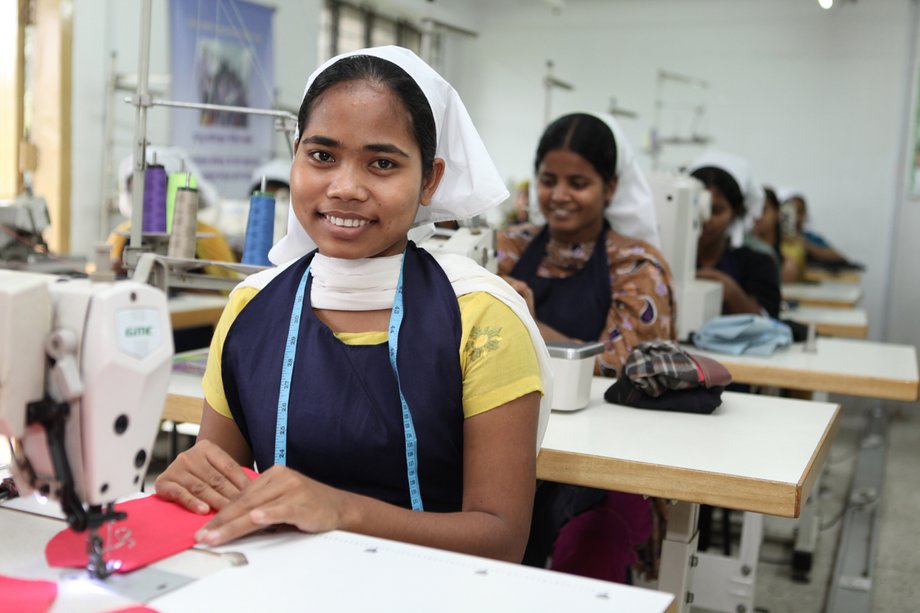In Bangladesh, women in textile factories often work in very poor conditions and have very few rights. Gender aspects, most notably, still play a very minor role in corporate and human resources management in most factories.
The Swedish fashion company Lindex together with GIZ created the Lindex WE Women Management System Program in 2017 as a public-private partnership. Since Bangladesh is Lindex biggest sourcing market and GIZ is active there in many ways it was decided to implement the project in Bangladesh.
The goal of WE Women has been to reduce the gender gap in management positions by giving women opportunities for skills training and mentorship. At the same time, leaders are sensitised to gender issues, with a focus on women’s health and closing wage gaps. This creates more inclusive and better jobs for women and also changes cultural norms, leading to improved gender equality.
The project

A core aspect of the joint project is to get a strong commitment from the owners and top management of the factories. If they do not see the need and also the benefit of empowering women, it is not possible to change anything. The most important tool developed was the self-assessment which is based on the UN’s Women Empowerment Principles (WEPs). The suppliers have achieved appropriate training, particularly for middle management, and support for the development and implementation of relevant action plans at factory level.
The self-assessment focuses on five areas:
- Establishing high level corporate leadership for gender equality (e.g. is gender equality mentioned in the business plan?)
- Treating all men and women fairly at the workplace (e.g. is there an equal paypolicy? Is there a pay gap?)
- Ensuring the health, safety and well-being of all women and men workers
- Promoting education, training and professional development for women
- Measuring and reporting on progress to achieve gender equality.
Suppliers use these focus areas to create their own gender plans, with timelines for improvement. It records the suppliers’ performance in terms of environmental and social standards and determines the order volume that Lindex awards its suppliers. This establishes a direct link between social and economic equity for women and their safety in the workplace on the one hand, and the suppliers’ business interests on the other.
In addition, Lindex raised awareness among the factory management for strengthening the position of women workers.
A community-run women’s café additionally offers textile factory workers advice on labour law issues and useful further training. Spurred by the progress achieved, Lindex is now rolling out the measures to other production sites, including India and Turkey.
Further success stories and results
- Environmental and social standards have improved at 27 suppliers.
- 4,000 multipliers have received gender training.
- Over 90% of the women interviewed as part of the project reported that their working conditions had improved over the project term.
More information about the project can be found on the homepage of develoPPP and the Lindex Group.
